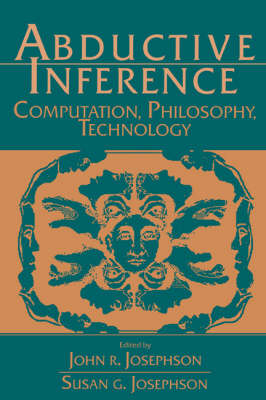
Abductive Inference
Computation, Philosophy, Technology
Seiten
1996
Cambridge University Press (Verlag)
978-0-521-57545-4 (ISBN)
Cambridge University Press (Verlag)
978-0-521-57545-4 (ISBN)
This volume makes significant progress in analysing abduction as an information-processing phenomenon, and in describing how AI systems can be built for abductive tasks such as diagnosis.
This book is about abduction, 'the logic of Sherlock Holmes', and about how some kinds of abductive reasoning can be programmed in a computer. The work brings together Artificial Intelligence and philosophy of science and is rich with implications for other areas such as, psychology, medical informatics, and linguistics. It also has subtle implications for evidence evaluation in areas such as accident investigation, confirmation of scientific theories, law, diagnosis, and financial auditing. The book is about certainty and the logico-computational foundations of knowledge; it is about inference in perception, reasoning strategies, and building expert systems.
This book is about abduction, 'the logic of Sherlock Holmes', and about how some kinds of abductive reasoning can be programmed in a computer. The work brings together Artificial Intelligence and philosophy of science and is rich with implications for other areas such as, psychology, medical informatics, and linguistics. It also has subtle implications for evidence evaluation in areas such as accident investigation, confirmation of scientific theories, law, diagnosis, and financial auditing. The book is about certainty and the logico-computational foundations of knowledge; it is about inference in perception, reasoning strategies, and building expert systems.
Introduction; 1. Conceptual analysis of abduction: what is abduction?; 2. Knowledge-based systems and the science of AI: 3. Two RED systems; 4. Generalizing the control strategy; 5. More kinds of knowledge: TIPS and PATHEX/LIVER TIPS; 6. Better task analysis, better strategy; 7. Computational complexity of abduction; 8. Diagnostic systems MDX2 and QUADS; 9. Practical abduction; 10. Perception and language understanding; Appendices.
| Erscheint lt. Verlag | 28.8.1996 |
|---|---|
| Zusatzinfo | 59 Line drawings, unspecified |
| Verlagsort | Cambridge |
| Sprache | englisch |
| Maße | 152 x 227 mm |
| Gewicht | 434 g |
| Themenwelt | Geisteswissenschaften ► Philosophie ► Logik |
| Geisteswissenschaften ► Psychologie ► Allgemeine Psychologie | |
| Geisteswissenschaften ► Psychologie ► Verhaltenstherapie | |
| Informatik ► Theorie / Studium ► Künstliche Intelligenz / Robotik | |
| Naturwissenschaften | |
| ISBN-10 | 0-521-57545-1 / 0521575451 |
| ISBN-13 | 978-0-521-57545-4 / 9780521575454 |
| Zustand | Neuware |
| Haben Sie eine Frage zum Produkt? |
Mehr entdecken
aus dem Bereich
aus dem Bereich
Buch | Softcover (2024)
REDLINE (Verlag)
CHF 27,95
Eine kurze Geschichte der Informationsnetzwerke von der Steinzeit bis …
Buch | Hardcover (2024)
Penguin (Verlag)
CHF 39,20


